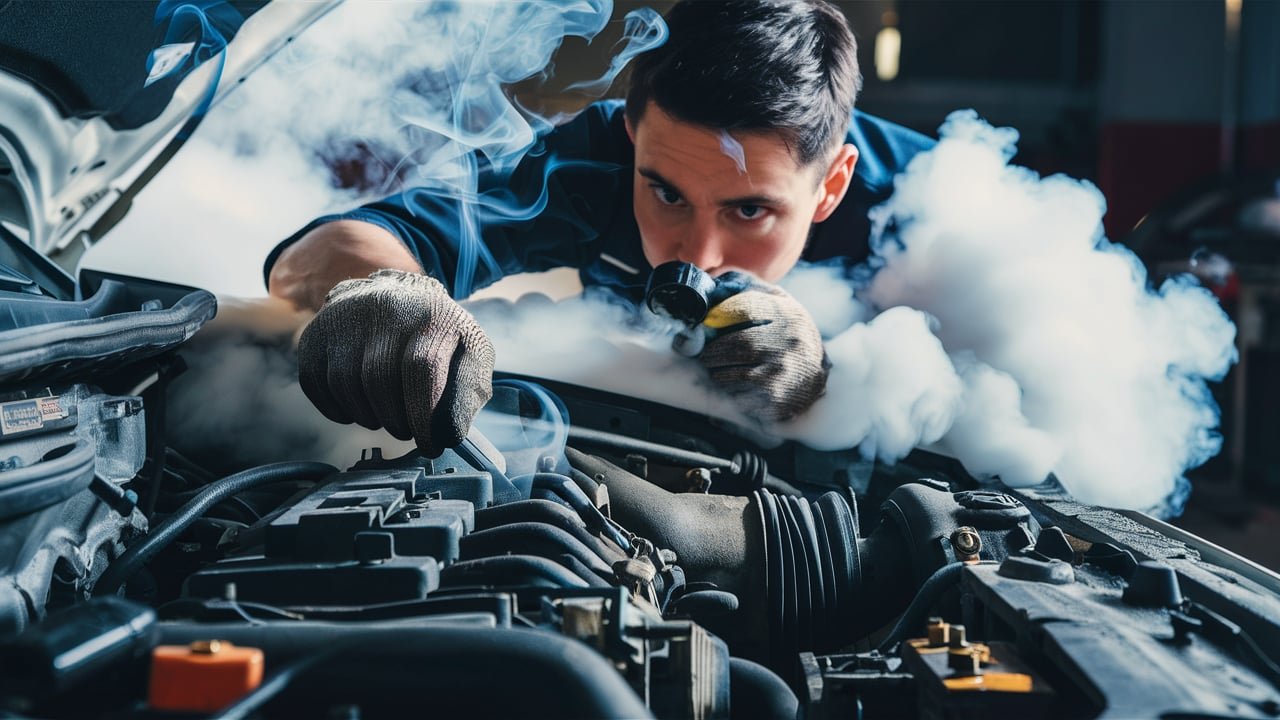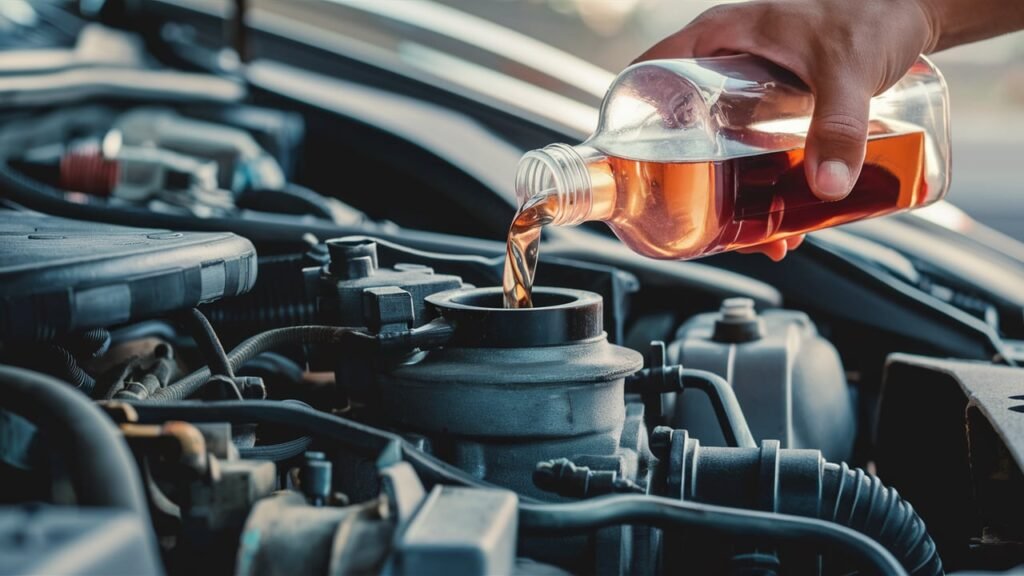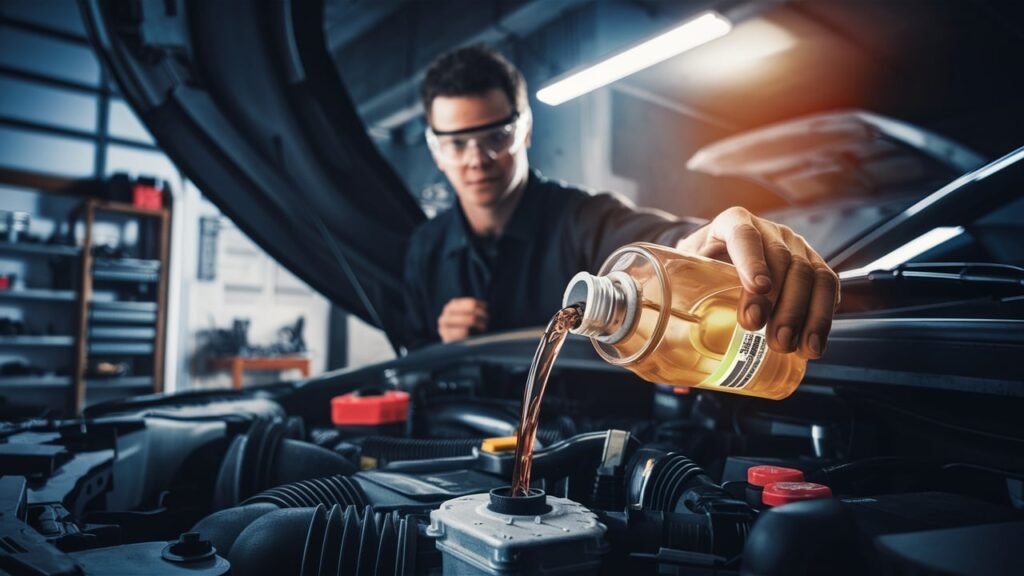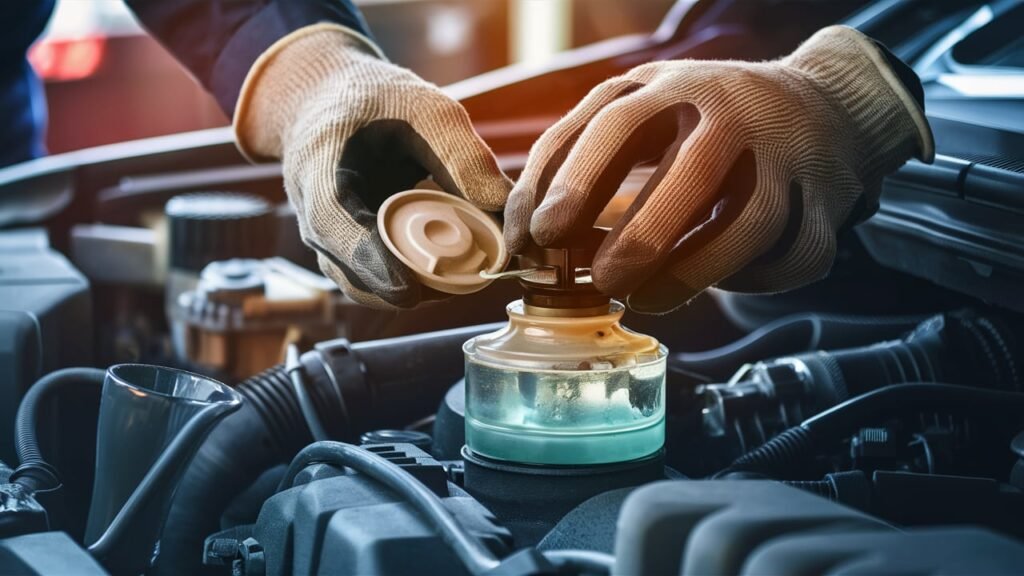
Unraveling the Mystery of Burnt Smell in Car Engines
Unraveling the enigma shrouded within the acrid scent that wafts from car engines unveils a realm of potential maladies lurking beneath the hood. The pervasive burnt smell emanating from the heart of a vehicle serves as an ominous indicator, hinting at a spectrum of underlying intricacies awaiting clarification.
Understanding this olfactory puzzle transcends mere curiosity; it stands as a vital call to action for car owners, DIY aficionados, and automotive experts alike.
Promptly addressing the pungent aroma that permeates the cockpit is not merely advisable; it is imperative to thwart potential harm and ensure unwavering roadworthiness. Ignoring this telltale sign risks more than just discomfort; it jeopardizes the integrity of the entire driving experience.
Delving deep into the nuances of burnt odors in car engines unravels a tapestry woven with crucial insights into vehicular health and safety.
As we venture forth into this investigative journey, equipped with technical rigor and analytical precision, we unveil the veiled mysteries behind what lingers in the air under your car’s hood. Join us as we navigate through smoke signals, unraveling secrets billowing from burning engines.
Why Does a Car Engine Produce a Burnt Smell?
When that unmistakable burnt odor infiltrates the air in your car, it can set off alarms about potential issues under the hood. The smell might be traced back to several culprits within the engine assembly, with overheating components and leaking fluids ranking as common suspects.
Overheating can occur due to a variety of factors – from coolant system failures to clogged air filters hindering proper airflow. These overheated parts can emit a burnt scent as they reach beyond their operational temperatures.
Likewise, leaks from components like the transmission or power steering systems could lead to fluids dripping onto hot engine surfaces, causing them to vaporize and produce a distinctive smell.

Pinpointing the precise origin of the burnt smell in your car’s engine becomes imperative for effective troubleshooting. While the odor might seem ubiquitous at first whiff, isolating its source helps formulate targeted solutions.
For example, distinguishing between an electrical issue versus an oil leak can drastically alter repair approaches and costs. Regular maintenance practices serve as proactive measures against potential burnt smells. Adhering to recommended service schedules not only ensures optimal performance but also aids in identifying early signs of problems before they escalate into costly repairs.
Consider this scenario: during a routine inspection, you detect a slight burning aroma emanating from your engine compartment. Further investigation reveals a deteriorating gasket causing small oil leaks onto your exhaust manifold – a recipe for that acrid smell tainting your driving experience.
Promptly replacing the faulty gasket eliminates both the odor concern and prevents potential engine damage down the road. Such instances underscore how meticulous attention to maintenance routines can nip burnt smells in the bud before they signal more severe malfunctions within your vehicle’s intricate machinery.
Analyzing the Role of Oil Leaks.
One common culprit behind the burnt smell in car engines is oil leaks. When a vehicle’s engine is in operation, high temperatures are generated, and any oil leaking onto these heated components can result in a distinctive burning odor.
Imagine a scenario where worn gaskets or seals allow motor oil to seep out and make contact with the exhaust manifold or other hot surfaces within the engine bay. This leads to the characteristic burnt scent that car owners often notice. Therefore, it is crucial to promptly identify and address oil leaks to prevent potential damage to engine parts.
Detecting oil leaks early on is essential for maintaining optimal engine performance and preventing safety hazards on the road. Simple visual inspections under the hood can sometimes reveal signs of oil seepage, such as oily residue around gaskets or visible drips on engine components.
Additionally, monitoring oil levels regularly and noting any unexpected drops can serve as an early warning sign of potential leaks. Addressing these issues promptly by replacing faulty gaskets or fixing damaged components not only eliminates the burnt smell but also ensures that the engine operates efficiently.

Timely oil changes are fundamental in preventing oil-related burnt smells in car engines. Over time, engine oil degrades, losing its lubricating properties and becoming more prone to leaking due to increased viscosity or decreased effectiveness of seals.
By adhering to manufacturer-recommended oil change intervals and using quality oils suited for the specific vehicle requirements, car owners can minimize the risks of developing burnt odors related to degraded lubricants.
Monitoring fluid levels regularly doesn’t just maintain engine health but also helps in early detection of potential leaks before they escalate into larger issues that could significantly impact overall vehicle performance.
Examining Electrical System Issues.
When dealing with a burnt smell emanating from your car engine, one often overlooked culprit could be lurking within the electrical system. Malfunctions in this intricate network of wiring and components can trigger that distinct burning odor.
Faulty wiring or overheated connections are common scenarios where an electrical issue can turn into a concerning olfactory experience for any driver. Understanding the role of the electrical system in potentially causing burnt smells is crucial to efficiently address the problem.
Diagnosing electrical system issues involves a meticulous approach. Visual inspections play a key role in identifying visible signs of damage or overheating within the wiring harnesses.

Additionally, utilizing testing procedures like multimeters can provide valuable insights into the health of various components within the system, pinpointing potential sources of the burnt smell accurately. These diagnostic steps are essential in isolating the root cause of the issue and devising an effective repair strategy.
For complex electrical system problems, seeking professional assistance is highly recommended. Trained technicians possess the expertise and equipment required to navigate through intricate circuits and swiftly resolve issues that may elude untrained individuals.
Entrusting such repairs to professionals ensures not only safety on the road but also reliability in addressing underlying malfunctions that could impact overall engine performance. Remember, when it comes to unraveling electrical mysteries causing burnt smells, professional intervention is often the most prudent course of action.
Understanding Brake System Concerns.
When that unmistakable burning smell creeps into your car cabin, one of the culprits could be lurking within your braking system. Worn-out brake pads or overheated components can generate a distinct burning odor while driving, signaling potential issues that require immediate attention.
As you tap on the brakes, the friction generated from worn brake pads could produce a burning smell akin to that of overheated metal components meeting rubber surfaces.
Recognizing the warning signs of brake system problems is crucial for maintaining safety and optimal performance on the road. If you notice squealing or grinding noises when applying the brakes, vibrations in the steering wheel, or an increased stopping distance, these could indicate deteriorating brake components requiring prompt inspection and maintenance.

Ignoring these symptoms not only compromises your safety but may lead to more extensive and costly repairs down the line.
To address brake system concerns effectively, it’s essential to conduct regular inspections and maintenance routines. Checking brake pad thickness, monitoring brake fluid levels, and examining brake lines for leaks or damage are key steps in preventing potential issues that could result in a burnt smell emanating from your car’s engine bay.
Scheduled visits to a qualified technician for thorough brake system evaluations can help ensure that your braking system remains in top condition, providing reliable stopping power when you need it most. Remember, proactive maintenance is a cornerstone of safe driving practices and can save you from unexpected surprises while on the road.
Addressing Coolant System Anomalies.
In the intricate ecosystem of a car engine, the coolant system plays a critical role in regulating temperatures and ensuring optimal performance. However, when this system falters, it can emit a distinctive burnt smell that should not be disregarded.
Coolant system anomalies, such as leaks or overheating, can trigger this odor, signaling potential issues that demand swift attention. Imagine a scenario where a slight burning scent creeps into the vehicle cabin during your daily commute—a situation that underscores the importance of promptly investigating the root cause within the coolant system.
To address concerns related to the coolant system effectively, car owners and technicians must embark on a systematic examination process. Checking coolant levels regularly becomes paramount in maintaining proper engine function and identifying any sudden drops indicative of leaks or other malfunctions.
Concurrently, inspecting hoses for signs of wear, cracks, or leaks is essential to prevent coolant from seeping onto hot engine components and generating that unwelcome burnt aroma. Failure to detect and resolve these issues promptly could lead to more severe consequences for both the coolant system itself and the overall health of the engine.
Neglecting routine maintenance tasks within the coolant system can have far-reaching repercussions that extend beyond just an unpleasant smell lingering in the air. For instance, continued operation with low coolant levels due to undetected leaks might result in engine overheating, potentially causing irreversible damage to vital components.
The cascading effects of such negligence could encompass compromised engine efficiency, increased repair costs, and even safety hazards on the road. Therefore, prioritizing timely inspections and proactive measures to address any coolant-related anomalies not only eliminates burnt smells but also safeguards the longevity and functionality of your vehicle’s engine.
Conclusion.
In conclusion, understanding the causes behind a burnt smell emanating from car engines is vital for both the longevity of the vehicle and the safety of its occupants. By recognizing the potential culprits, such as oil leaks, electrical system malfunctions, brake system issues, and coolant system anomalies, car owners can take proactive measures to address these concerns promptly.
Regular maintenance and timely inspections play a crucial role in preventing burnt smells from escalating into more significant problems that could compromise engine performance.
To maintain optimal functionality and ensure road safety, it is essential for car owners, DIY enthusiasts, automotive technicians, and mechanics to stay vigilant about any unusual odors coming from their vehicles. The investigative approach taken throughout this article aimed to provide clear insights into the various factors contributing to burnt smells in car engines.
By applying the knowledge shared here and staying proactive in addressing any signs of trouble promptly, individuals can keep their vehicles running smoothly and avoid potential risks associated with neglected engine issues. Remember, swift action today can prevent costly repairs tomorrow.




